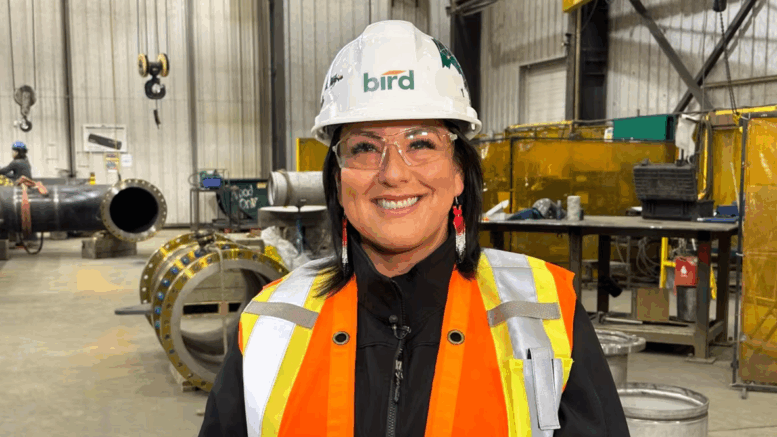By Laura Mushumanski, Local Journalism Initiative Reporter
(ANNews) – What is a transferable skill? And why is it important? Everything we do in life, the skills we build over time by continuously learning and engaging with creation, support a person in understanding and connecting with the world around us. The skills that are learned by people who work with their hands allow perspective and understanding to be brought into the world. They are an application of how to conduct oneself in a good way that goes full circle into every part of a person’s way of being, knowing, and understanding. This is the making of transferable skills, that build confidence for all walks of life, changes lives, and impacts community in good ways.
Academia teaches us theory for the most part, while the skill trades are action based, and theory combined. Indigenous ways of life – like walking in ceremony – also put both actions and theory into practice and over time become a part of our lived experience and wisdom. The tradespeople are the ones that build homes for our families, create tangible objects based on visions and ideas being brought to fruition. These are all things that support our way of life, keep us safe and out of harm’s way; they are something to honour in a good way.
Working in the skill trades brings a rich and vibrant understanding where the skills obtained become transferrable to all aspects of a person’s life. Think of living in the bush and manning a trapline, or picking berries, fishing, hunting. This experiential part of learning, these life skills, teach people how to sustain themselves in a good way, leading to the understanding of how to take care of community. This understanding is part of our Metis/Cree sister Rebecca Kragnes’ life. She is the Director of Indigenous Relations and Community Engagement with Bird Construction and this is what she leads with when advocating and bringing capacity building and change for Indigenous women and peoples within the skill trades.
A dramatic illness changed Rebecca’s perspective on life. After recovering she became more driven to do things that positively impacted society, she shared. “I am also very driven to find space in our projects for Indigenous people and Indigenous workers, especially women in skill trades because it still has a very low representation. [We need to] create [more] welcoming places and pathways into skill trades for Indigenous women or Indigenous people – I think it is such an important piece.”
Growing up on the trapline, Kragnes’ “hand skills brought so many [transferable] skills to the trades” when she started her career as Red Seal Electrician. She also noticed how she worked in non-traditional spaces with little ability to make change. Then after encountering a life changing illness, Rebecca quit working in the oil and gas industry, eventually leading to her working in Indigenous relations, where she “fell in love with working with Indigenous communities, to bring capability building and positive change to communities.”
“Achieving my skill trade certification was the foundation for all of my other careers and all of the opportunities I have had,” she explained. “I think that if I can share that and also carve out opportunities for people to try that path, that means a lot to me, and I know the ripple effect of changing one person’s life, especially in Indian country. It’s like you are changing 20-30 people’s lives; you are changing their children, their grandchildren, their nieces and nephews, their parents. There’s so much change that happens when you take somebody from a scarcity to an abundance lifestyle.”
Kragnes has taken all her lived experience, along with western education into her current role, where her understanding has become a part of her ways of knowing in how to support young people and women entering into the skill trades. “You learn so much mentorship that goes beyond the tactical skills… Indigenous people need to have confidence to go into those spaces and feel like they belong. That sense of belonging, and the sense of you deserve to be here just as much as everyone else is so important… When they feel like they belong, they stay, that is the most important thing. Those little problem-solving actions really build confidence… We need to help young people and women build that confidence to know that they can do anything if they really want to.”
From the wealth of knowledge Rebecca walks with, when reflecting on advice she would gift her younger self, and for anyone interested in learning she offers, “Don’t give up – challenges are never what you think they are, take all the goodness from these experiences and bring them into the world. Be wise enough to look for roadblocks you create for yourself and build a network with diverse perspectives to help support you along the way.”



Be the first to comment on "Rebecca Kragnes discusses Transferable Skills, Skill Trades and Positive Change"